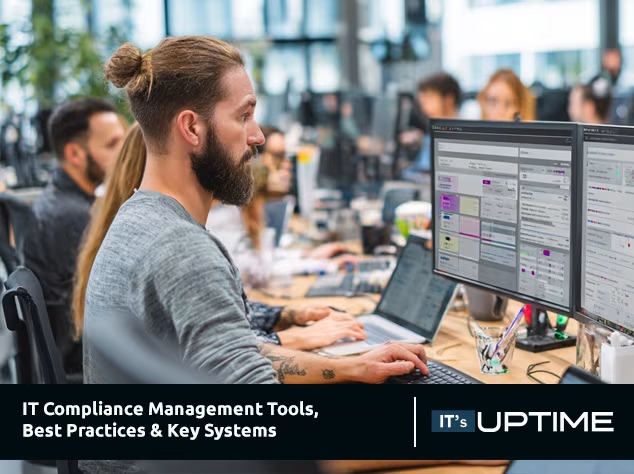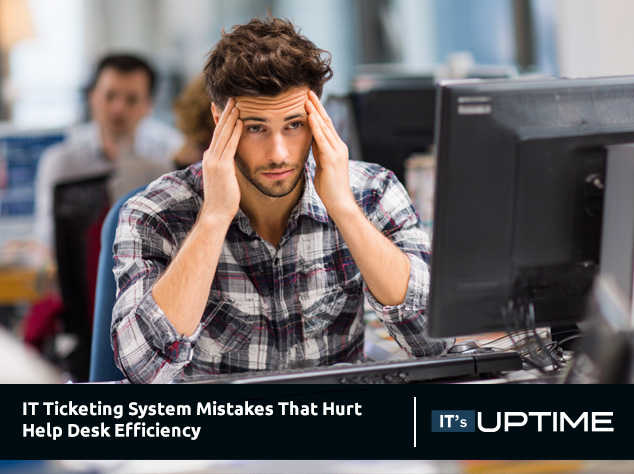Security as a Service (SECaaS): The Smart Way to Protect Your Business
George Grubor

%20The%20smart%20way%20to%20protect%20your%20business.jpg)
Cyber threats aren’t just a risk for Fortune 500 companies—they’re a daily reality for small and mid-sized businesses. Hackers know you have valuable data but fewer security resources than big corporations. If you’re relying on outdated firewalls, basic antivirus software, or a reactive IT team, you’re leaving the door wide open for data breaches, phishing attacks, and ransomware.
The good news? You don’t need to be a cybersecurity expert to protect your business. Security as a Service (SECaaS) provides the same level of protection as enterprise-grade security teams—without the hefty price tag or in-house IT burden.

What is security as a service?
Security as a Service (SECaaS) is a cloud-based model that provides businesses with comprehensive cybersecurity solutions on a subscription basis. Instead of maintaining costly on-premises security infrastructure, you can outsource your security needs to experts who monitor, manage, and enhance your security posture in real time.
From managed network security services to cloud security solutions, SECaaS covers a wide range of security functions, including:
- Network security – Protection against unauthorized access and cyber threats.
- Email security – Prevent phishing, malware, and spam.
- Intrusion detection and prevention – Identify and stop cyberattacks before they escalate.
- Identity and access management (IAM) – Ensure only authorized users can access critical business data.
- Endpoint security – Safeguard devices connected to your network from threats.
The benefits of security as a service for small businesses
With Security as a Service (SECaaS), you get enterprise-level protection without the high costs—offering benefits like proactive threat detection, simplified compliance, and 24/7 monitoring. Here’s how it helps:
Cost-effective security without the complexity
Keeping up with the latest security threats requires constant monitoring, updates, and expertise. Hiring a full-time cybersecurity team is expensive, but outsourcing security gives you the same protection at a fraction of the cost.
Managed network security services that work 24/7
Cybercriminals don’t keep business hours, and neither should your security. With managed network security services, your systems are monitored around the clock, ensuring that any suspicious activity is detected and addressed before it turns into a full-blown attack.
Proactive protection against data breaches
A single data breach can stagnate your business—financially and reputationally. SECaaS solutions provide intrusion detection, endpoint security, web security, and email security tools to prevent breaches before they happen.
Seamless integration with your existing IT infrastructure
Worried about how security services will fit into your current setup? SECaaS providers offer cloud security solutions that integrate effortlessly with your cloud apps, on-premises systems, and SaaS applications, giving you full protection without disrupting your operations.
Security awareness training for your team
Technology alone isn’t enough—your employees need to be your first line of defense. The benefits of security awareness training include helping your team recognize and avoid cyber threats, such as phishing scams, malware, and social engineering attacks.

Why outsourcing security makes sense
Why are more businesses turning to managed security service providers instead of handling security in-house? Here are some of the most significant advantages:
Better security, fewer headaches
You didn’t start your business to spend hours dealing with cybersecurity threats. Outsourcing security to a SECaaS provider lets you focus on running your company while experts handle the complex security landscape.
Access to top-tier security expertise and tools
Most businesses can’t afford to invest in the latest security software, intrusion detection, identity and access management (IAM), and cloud security tools. By partnering with a managed security service provider, businesses gain access to experienced security professionals who stay ahead of emerging risks and industry trends.
Cost savings, scalability, and flexibility
Building an in-house cybersecurity team requires significant investments in technology, staffing, and training. With SECaaS, businesses only pay for the security services they need, reducing upfront costs while gaining access to cutting-edge security solutions. You can also easily scale your security services as your business grows without the hassle of purchasing new hardware or hiring additional staff.
24/7 security monitoring and rapid response
Cyber threats don’t take breaks, and neither should your security team. Managed network security services provide round-the-clock monitoring, immediate threat detection, and fast incident response—something most SMBs can’t achieve with an in-house IT team alone.
Seamless cloud integration
As businesses migrate to cloud computing, security risks increase. SECaaS ensures your cloud environments, applications, and data remain secure, providing protection against unauthorized access, data loss, and compliance violations.
Improved compliance and risk management
Many industries require businesses to meet strict security regulations, such as HIPAA, GDPR, and PCI DSS. SECaaS vendors help businesses stay compliant by implementing necessary security measures, conducting security assessments, and offering ongoing monitoring.
How to choose the right SECaaS provider
Not all security-as-a-service providers are created equal. When evaluating potential vendors, consider these key factors:
- Range of services – Does the provider offer comprehensive security solutions, including intrusion detection, email security, and cloud-based protection?
- Scalability – Can the security services grow with your business needs?
- Compliance support – Does the provider help with regulatory requirements specific to your industry?
- Customer support – Will you receive 24/7 monitoring and assistance in case of a security incident?
- Reputation and expertise – Does the provider have a proven track record of delivering effective security solutions?
By choosing the right security service provider, you can protect your business against cyber threats while focusing on growth and innovation.

Take control of your business security today
Cyber threats are only getting more sophisticated, and hoping for the best isn’t a strategy. With security as a service, you get enterprise-grade protection, expert support, and peace of mind—all without breaking your budget.
If you’re ready to outsource your security and take your protection to the next level, it’s time to act. Let’s secure your business before the next cyber threat strikes.
IT’s UpTime is here to help. With managed network security services, proactive monitoring, and cutting-edge security solutions, we make cybersecurity simple for small and mid-sized businesses in the Midwest. Let’s protect what you’ve built—before it’s too late.
Frequently asked questions
What is a service provider’s role in Security-as-a-Service?
A service provider offering Security-as-a-Service (SECaaS) delivers data loss prevention, security information and event management (SIEM), and incident response to protect businesses from cyber threats. They manage security architecture, security operations, and security technology to ensure a robust security environment.
How does cloud migration impact security?
Cloud migration improves efficiency, but it also introduces security issues like data exposure. Businesses need cloud-based security, application security, and data security solutions to ensure compliance and protection. A provider delivers security solutions that integrate with cloud infrastructures to maintain a secure cloud environment.
What are some examples of security measures used in cloud-based and on-premises systems?
Examples of security measures include enterprise security, web application security, and vulnerability scanning. Whether cloud-based or on-premises, businesses should implement security management, security technology, and data protection to reduce risks.
Why is email security important in preventing phishing and intrusion attacks?
Email security is critical in blocking phishing and intrusion attempts. Businesses should use email security tools for data loss prevention, application security testing, and security information management to reduce vulnerabilities. Substantial security operations ensure that email threats don’t lead to data breaches.
How do security providers use tools and services to protect cloud applications?
Security providers implement tools and services, such as cloud security alliance guidelines, application security, and incident response, to secure cloud applications. These solutions help manage security events and ensure a secure cloud for sensitive business data.
How does data travel securely between cloud apps?
Businesses use data protection, security operations, and security architecture strategies to protect data traveling between cloud apps. Cloud-based security and security management ensure that sensitive information is encrypted and monitored for potential security issues.









